Q
honda civic electric parking brake problem (how to fix)
Here's how to tackle Honda Civic electric parking brake issues. First, check the usual suspects: start by verifying the power supply and fuse for the electric parking brake module—if the fuse is blown, swap it out with one of the same rating. Next, inspect the brake motor and wiring harness for loose connections or damage; for these, you’ll probably need a pro with a diagnostic scanner to pull codes and pinpoint the exact problem.
If the parking brake won’t release, try this trick: with the ignition on, gently press the brake pedal while holding down the parking brake button to force it to disengage. But if the problem keeps coming back, head to an authorized Honda service center ASAP for a full system check—don’t risk your safety.
Unlike old-school manual handbrakes, electric systems rely heavily on circuits and sensors. So during regular maintenance, make sure to clean dust and rust around the brake calipers to keep gunk from jamming the motor. Malaysia’s humid weather can also speed up wire oxidation, so if you’re leaving the car parked for a while, fire it up occasionally to let the electronics run a self-check.
A few owners have also mentioned temporary glitches when the battery voltage is low, so keeping your battery in good shape is key for preventing these issues. And if your DIY fixes don’t work, resist the urge to force it—you could end up damaging other brake components.
Special Disclaimer: This content is published by users and does not represent the views or position of PCauto.
Related Q&A
Q
How much does it cost to replace a timing belt on a 2018 Honda Civic?
The cost to replace the timing belt on a 2018 Honda Civic typically ranges from RM800 to RM1500. The exact price depends on the type of repair shop, whether original or aftermarket parts are used, and if components like the water pump are replaced at the same time. A genuine belt kit plus a water pump can push the total cost close to RM2000. As a critical engine component, the timing belt should be replaced every 60,000 to 100,000 kilometers or around 5 years. A broken belt can cause catastrophic damage from valve-piston collisions. Beyond the belt itself, professional technicians usually recommend replacing the tensioner and idler pulleys together for system stability. Note that some models use a timing chain design which doesn’t require regular replacement. When choosing a repair shop, verify they use legitimate parts and have Honda-specific experience—improper installation shortens belt life. Regularly checking for cracks or wear on the belt also helps prevent sudden failures.
Q
Is the 2018 Civic a safe car?
The 2018 Honda Civic shines when it comes to safety, packing in a solid lineup of active and passive safety tech. You've got your standard stuff like Vehicle Stability Control, Anti-lock Braking System, multiple airbags, and a rigid body structure—all working together to keep occupants protected when crash tests put it to the test. Step up to the higher trims, and you'll get Honda SENSING, which adds some pretty advanced features: adaptive cruise control, lane keeping assist, and collision mitigation braking, just to name a few. These definitely give peace of mind on the road. Behind the wheel, the Civic feels steady and the brakes are reliable too, making it a solid choice for everyday driving. If you're looking to dig deeper into car safety, checking out crash test ratings is a good move—think ASEAN NCAP or Global NCAP scores. They give you a better overall picture of how a car holds up. And don't forget, regular maintenance—keeping an eye on tires, brakes, and other key parts—is just as crucial for staying safe out there.
Q
How is the 2018 Civic's ride quality?
The 2018 Civic delivers well-balanced ride comfort in its class. The suspension tuning leans sporty but still works for daily use – the front MacPherson strut and rear multi-link setup does a solid job filtering out small road vibrations. That said, rear passengers will feel noticeable jolts when going over speed bumps or rough roads, which ties back to its stiffer spring rates.
On the NVH front, tire noise gets a bit pronounced at highway speeds, but engine insulation is nicely done. The 1.5T turbo engine stays at low revs during cruising, keeping things calm. The seats have just the right amount of padding – supportive enough for long drives without feeling too firm. Steering feel is sharp with good road feedback, not overly sensitive.
Notably, this generation Civic has 25% stiffer body rigidity than the previous model, resulting in more stable cornering posture. This design boosts handling while also indirectly improving ride stability during quick lane changes. If comfort is a higher priority, go for the factory 17-inch wheel option – it offers better shock absorption compared to the 18-inch version. And don’t forget to regularly check tire pressure and suspension bushing condition; both have a big impact on overall ride quality.
Q
Is a used 2018 Civic a smart buy now?
The 2018 Honda Civic is a solid value pick as a used car right now. It strikes a good balance between power, space, and fuel economy. The 1.5T turbo engine delivers plenty of pep while keeping gas mileage reasonable, making it good for both daily commutes and longer drives. The interior is roomy, especially the rear legroom which beats out many competitors, and the trunk space is enough for family use too.
In terms of reliability, it has a pretty low failure rate, routine maintenance costs are reasonable, and parts are easy to come by at decent prices. But keep an eye out for the oil dilution issue that some early batches had—definitely check the service records or get a professional inspection.
Used prices have stabilized now, offering a nice discount compared to buying new, but when you buy, pay attention to mileage, accident history, and maintenance upkeep. I’d recommend looking for a car still under the original factory warranty or consider purchasing an extended warranty.
The Civic has a big local presence, so it’s relatively easy to resell when you’re ready, and its resale value is above average for the class. You could also check out the same-year Toyota Corolla or Mazda3, but the Civic has the edge when it comes to driving fun and interior space, making it a great fit for buyers who want practicality with a bit of driving enjoyment.
Q
What should I pay for a 2018 Honda Civic?
The used car prices for the 2018 Honda Civic typically range from RM60,000 to RM90,000, depending on factors like vehicle condition, mileage, trim level, and maintenance records. The 1.8L S trim is relatively more affordable, while the top-spec 1.5L Turbo RS is closer to the upper end of that range. It's advisable to check specific quotes through used car platforms or dealerships before buying, and also pay attention to inspecting for accident history or regular maintenance certificates. As a popular model, the Civic holds its value well and has a solid reliability record, especially the 1.5T turbo engine which strikes a good balance between power and fuel efficiency, making it suitable for daily driving. If you're on a tighter budget, you could consider competitors of similar age, but be sure to compare configurations and after-sales support. Additionally, if financing the purchase, it's recommended to compare interest rate plans from different banks to reduce long-term ownership costs.
Q
What is the AC problem in the Honda Civic 2018?
The 2018 Honda Civic has air conditioning issues mainly centered around inconsistent cooling performance or reduced airflow, which are usually related to condenser leaks, low refrigerant levels, or compressor failures. Some owners have reported that the AC efficiency drops significantly in hot weather. If you encounter such problems, it's advisable to first check the refrigerant pressure and inspect the condenser for damage. Regularly replacing the cabin air filter in daily use can effectively maintain air circulation efficiency, while avoiding prolonged use of the recirculation mode to prevent overloading the system. It's important to note that the AC system performance of all vehicles will naturally degrade over time, so regular maintenance is key—like checking the refrigerant condition every two years and cleaning dust and debris from the condenser fins to improve heat dissipation. If you experience intermittent cooling failures, it might be due to a clogged expansion valve or poor electrical connections, which require diagnosis by a professional technician using pressure gauges. Additionally, using a sunshade when parking in summer to reduce interior heat buildup can significantly lower the load on the AC when starting up.
Q
What engine is in a 2018 Civic?
The 2018 Honda Civic offers a range of engine options depending on the market. The most common is the 1.5-liter turbocharged four-cylinder (code-named L15B7), which features VTEC technology. It puts out around 174 horsepower and 220 Nm of peak torque, mated to either a CVT or a 6-speed manual transmission. It delivers a balanced performance with excellent fuel economy, making it perfect for daily driving. Additionally, some regions get a 2.0-liter naturally aspirated four-cylinder (code-named K20C2) with 158 horsepower and 187 Nm of torque. While it's a bit less powerful than the turbo version, it's simpler in structure and has lower maintenance costs. It's worth noting that the 2018 Civic Type R comes with a high-performance 2.0-liter turbo engine (code-named K20C1), though that's a special edition model. For most buyers, the 1.5T engine is the more mainstream pick. It provides plenty of torque at low revs, and Honda's Earth Dreams technology ensures good fuel efficiency, traits that help it stand out in its class.
Q
How many miles can a 2018 Civic last?
The 2018 Honda Civic can typically last between 200,000 to 300,000 miles (about 320,000 to 480,000 kilometers) with regular maintenance and proper use. Its actual lifespan depends on factors like driving habits, maintenance frequency, and road conditions. The car's 1.5T turbocharged engine or 2.0L naturally aspirated engine are known for reliability, paired with either a CVT transmission or 6-speed manual, making the powertrain quite durable. Regularly changing key fluids like engine oil, transmission fluid, and brake fluid, along with timely inspections of tires, brake pads, and suspension components, can significantly extend the vehicle's life. It's worth noting that the Civic holds its value well and performs strong in the used car market, which is another indicator of its long-term dependability. If you frequently drive in congested cities or use it for short trips, consider shortening maintenance intervals to reduce carbon buildup and mechanical wear. Additionally, the hot and humid climate in Southeast Asia can affect rubber parts and electronic components, so regular checks on these items can help prevent potential issues. Overall, with proper care, this car is more than capable of accompanying you for over 10 years or even longer.
Q
What is the gas mileage on a 2018 Honda Civic?
The fuel efficiency of the 2018 Honda Civic varies depending on the powertrain configuration. The version equipped with a 1.8-liter naturally aspirated engine has a combined fuel consumption of approximately 6.5 liters per 100 kilometers, while the 1.5-liter turbocharged model is more efficient, with a combined fuel consumption of around 5.8 liters per 100 kilometers. Actual fuel consumption may vary slightly based on driving habits, road conditions, and maintenance status. Thanks to the optimized pairing of the Earth Dreams technology engine and CVT transmission, this car strikes a good balance between fuel economy and power response, making it suitable for daily commuting and long-distance driving. To further improve fuel efficiency, it is recommended to regularly maintain the air filter and tires, avoid sudden acceleration or speeding, and keep an eye on whether tire pressure is at the recommended level. Among models in its class, the Civic's fuel efficiency is above average, balancing practicality and economy, making it a solid choice for consumers who value vehicle operating costs.
Q
What is the trade-in value of a 2018 Honda Civic?
The used car valuation for a 2018 Honda Civic typically ranges from RM70,000 to RM90,000, with the exact price depending on factors like vehicle condition, mileage, trim level, and service history. The 1.8L S trim, being the base model, usually sits at the lower end, while the top-spec 1.5L Turbo RS can get close to the upper limit. There are a few key points to consider when valuing a used Civic. First is mileage – ideally around 15,000 km per year; anything over 20,000 km annually might impact the price. Second is service records – a complete dealer service history can boost residual value by about 5% to 8%. On the flip side, accident-damaged or flood-affected cars will take a huge hit, depreciating by 30% to 50%. It’s a good idea to get a free appraisal from an authorized Honda dealer before selling and also compare quotes from multiple used car dealers. With the recent increase in used car supply, there might be more room for negotiation. If you’re thinking about trading it in for a new car, some dealers offer trade-in bonuses that could be better than selling directly, but make sure to check if the new car discount and old car valuation balance out. Understanding these factors will help you get a fairer price in the transaction, and it’s also recommended to get a vehicle inspection report from a third-party service to build buyer confidence.
Popular Cars
Model Year
Car Compare
Car Photo
Latest Q&A
Q
Do I need an alignment after rotation?
Whether a four-wheel alignment is needed after tire replacement depends on the actual condition of the vehicle. If only the tires are replaced and the vehicle has been driving normally without deviation, steering wheel vibration, or uneven tire wear, a four-wheel alignment is usually not required immediately, but wheel balancing must be performed to ensure stability when the wheels rotate at high speeds. However, if problems such as directional deviation, reduced steering precision, misaligned steering wheel, or abnormal tire wear (e.g., one-sided wear) occur after tire replacement, four-wheel alignment is necessary to adjust the geometric parameters of the suspension system (including caster angle, front wheel camber, etc.), thereby restoring the vehicle's straight-line driving stability and uniform tire contact with the road. Moreover, if chassis component repairs (such as suspension or steering system) are involved during tire replacement or the vehicle has been in a collision, four-wheel alignment becomes an essential step, as it can effectively reduce abnormal tire wear, improve handling safety, and lower fuel consumption. It is recommended to check the alignment parameters regularly every 20,000 kilometers or once a year. If you frequently encounter rough road conditions (such as curbs or speed bumps) during daily driving, the inspection interval should be shortened accordingly. Professional technicians can measure the data using specialized equipment and compare it with the manufacturer's specifications to determine whether adjustments are needed.
Q
Is it okay to rotate tires every 10,000 km?
Rotating tires every 10,000 kilometers is a reasonable and necessary maintenance measure, especially for fuel vehicles, as this frequency can effectively balance the wear difference between front and rear tires. Tire rotation involves regularly adjusting the installation positions of tires (e.g., moving front tires to the rear), which ensures more uniform wear across all tires, thereby extending the overall service life by approximately 20%-30%. For fuel vehicles, it is recommended to rotate tires every 10,000 kilometers, while for new energy vehicles, due to their greater weight and stronger torque output, the interval should be reduced to 8,000 kilometers. During rotation, the cross-rotation method should be employed (i.e., moving front tires to the opposite rear positions), and tire pressure should be checked simultaneously to ensure it meets the specified standards (2.3-2.5 bar for fuel vehicles, with an additional 0.2 bar for new energy vehicles). It is important to note that if a tire exhibits abnormal unilateral wear, bulges, or tread depth below 1.6 millimeters, simple rotation is not recommended and the tire should be replaced immediately. Regular monthly tire pressure checks and removal of debris from treads can further enhance tire performance and safety.
Q
What happens if you don't rotate tires?
If tire rotation is not performed regularly, it will lead to uneven tire wear, which in turn causes multiple problems. For front-wheel-drive vehicles, the front tires bear both driving and steering functions, so their wear rate is significantly faster than that of the rear tires; for rear-wheel-drive vehicles, since power is concentrated on the rear tires, the rear tires wear more noticeably. Long-term failure to rotate tires will shorten the overall tire life by 20%-40%—the front tires may be scrapped prematurely while the rear tires remain relatively new, resulting in resource waste. In addition, uneven wear reduces traction, particularly on wet surfaces, which can easily lead to skidding or a 10%-15% increase in braking distance, thereby elevating driving risks. Irregular wear also exacerbates tire noise and increases fuel consumption by 0.3-0.8 liters per 100 kilometers due to uneven rolling resistance. It is recommended to rotate tires every 10,000 to 15,000 kilometers. For front-wheel-drive vehicles, the cross-rotation method should be employed (left front to right rear, right front to left rear), while for rear-wheel-drive vehicles, the rear tires need to be crossed to the front. After rotation, tire pressure (the standard value typically ranges from 2.3 to 2.6 bar) should be verified and wheel balancing performed to prevent high-speed vibrations. If the tires exhibit irregular wear patterns or the tread depth falls below 1.6 mm, they should be replaced immediately. Regular tire rotation not only prolongs tire lifespan but also enhances fuel efficiency and driving safety. The cost of a single rotation is approximately 50 to 100 ringgit, substantially lower than the expense of premature tire replacement.
Q
Is it good to rotate car tires?
Tire rotation is an important maintenance measure to ensure even tire wear and extend service life. It is recommended to perform it every 5,000 to 10,000 kilometers or when uneven wear is detected. For front-wheel drive vehicles, the front tires wear faster as they handle steering and braking tasks, so they need to be cross-rotated with the rear tires (left front to right rear, right front to left rear). For rear-wheel drive vehicles, the rear tires should be diagonally swapped with the front tires to balance the wear of the drive wheels. If the tires have a directional tread pattern or asymmetric design, the rotation direction must be maintained, and only front-to-rear swaps on the same side are allowed to avoid affecting handling on wet and slippery roads. After rotation, the tire pressure should be adjusted to the standard for the corresponding wheel position, and it is recommended to perform dynamic balancing and four-wheel alignment simultaneously to optimize driving stability. Note that snow tires or studded tires cannot be rotated, and tires with different front and rear sizes can only be swapped left and right. Regular rotation can reduce abnormal wear (such as uneven wear or wavy patterns), improve grip and driving quietness, reduce safety hazards caused by tire problems, and save replacement costs in the long run. The specific operation should be based on the vehicle manual. If there is a lack of guidance, the cross-rotation method for bias-ply tires or the same-side rotation method for radial tires can be prioritized.
Q
How often should car tyres be rotated?
The replacement cycle of car tires should be determined by comprehensively considering factors such as service life, mileage, driving habits, and environmental conditions. Generally, it is recommended to replace them every 3 to 5 years or after 60,000 to 80,000 kilometers of driving, whichever comes first. As rubber products, tires deteriorate over time. Even if the mileage threshold hasn't been reached, immediate replacement is necessary when sidewall cracks, bulges appear, or tread depth falls below 1.6 mm (verifiable with a coin test) to ensure safety. Due to their heavier weight and stronger torque output, new energy vehicles experience accelerated tire wear. It is advisable to shorten the inspection interval to every six months, with urban commuting replacement mileage typically ranging from 42,000 to 56,000 kilometers. Regular tire rotation helps distribute wear evenly. For front-wheel-drive vehicles, front-to-rear rotation every 8,000 to 10,000 kilometers is recommended, while for new energy vehicles with higher front axle loads, this interval can be reduced to 6,000 to 8,000 kilometers. Additionally, maintaining cold tire pressure at 2.3 to 2.5 bar (add 0.2 bar for new energy vehicles) and avoiding aggressive maneuvers like rapid acceleration and hard braking can extend tire lifespan by 15% to 20%. Tires exceeding 6 years from their production date (identifiable via the DOT code on the sidewall) should be replaced regardless of apparent condition.
View MoreRelated News

Civic e:HEV is equipped with S+Shift technology, making it enjoyable to drive even in hybrid mode.
MichaelJan 16, 2026
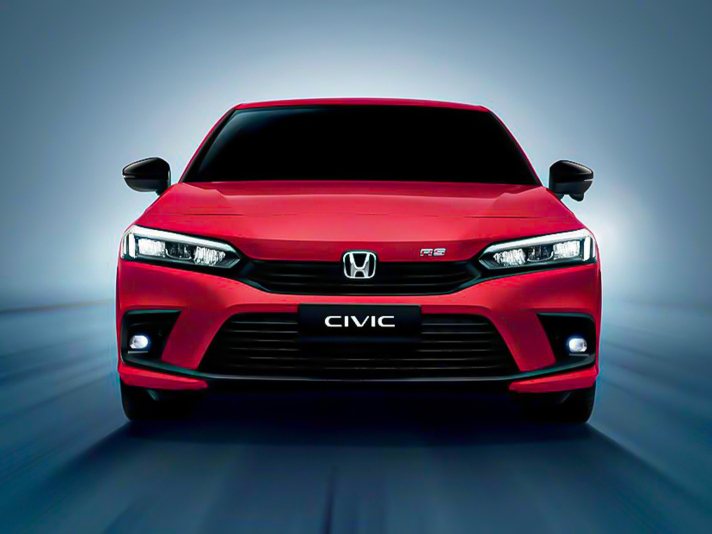
Honda Civic Interior Revealed: A Comprehensive Analysis of Civic’s Interior Charm
Kevin WongJul 10, 2025
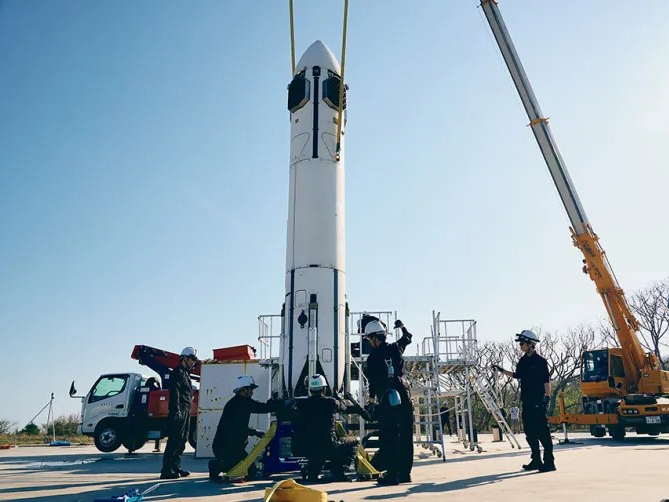
Success! Honda Type R Rocket Test Paves Way for 2029 Space Mission
Kevin WongJun 24, 2025
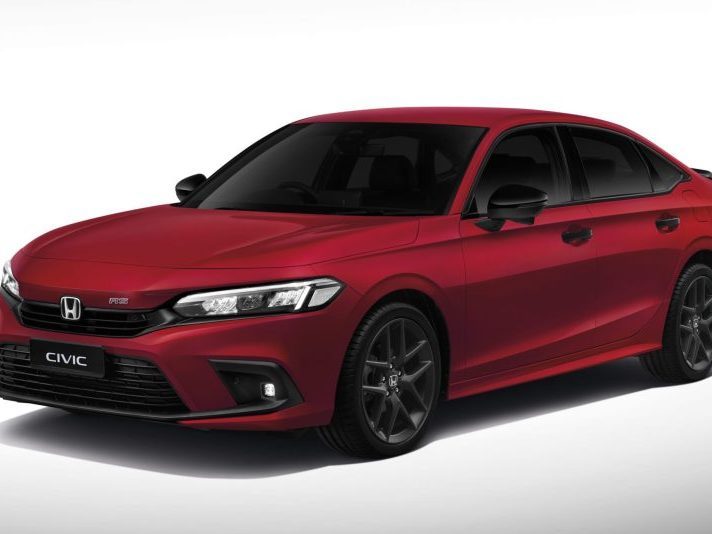
Honda Civic Price Revealed: The Most Detailed Buying Guide!
AshleyApr 8, 2025
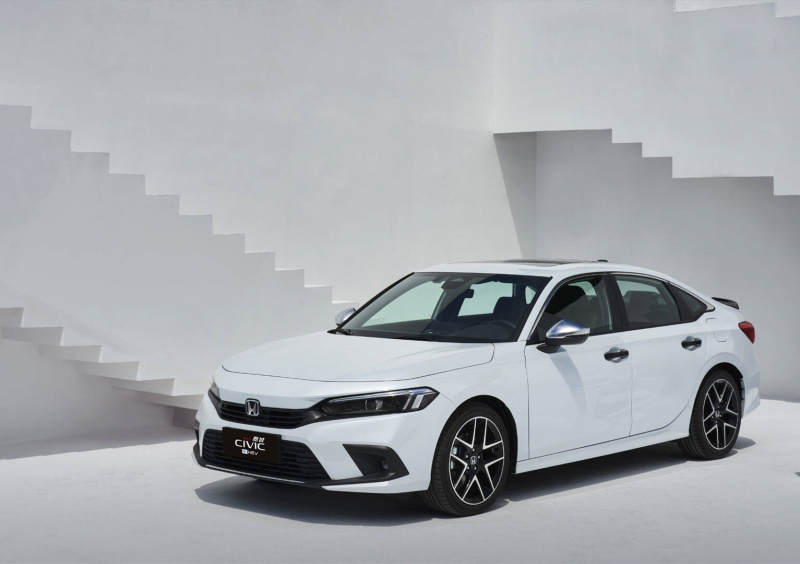
Whether it's about appearance or handling, why do young people all like Honda Civic?
WilliamSep 24, 2024
View More





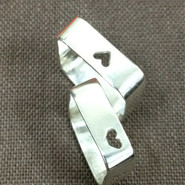






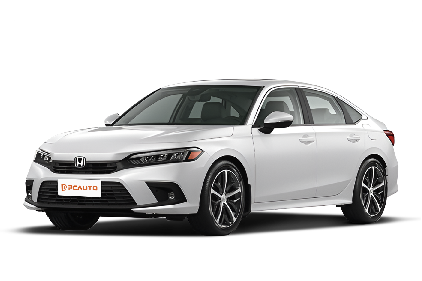
 Cars
Cars




Pros
Cons